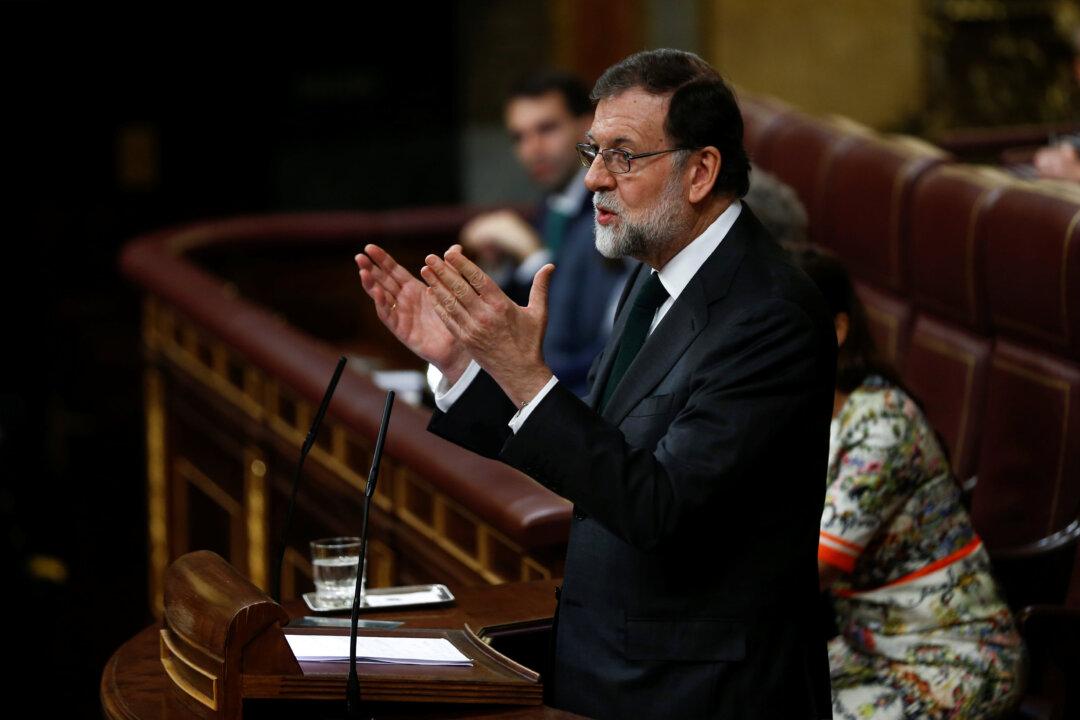MADRID—Spain’s center-right Prime Minister Mariano Rajoy was voted out of office on Friday, June 1, and replaced by a socialist, in a no-confidence motion triggered by a long-running corruption trial involving members of his party.
Socialist leader Pedro Sanchez on Thursday secured the backing of six smaller parties for the motion, giving him the absolute majority he needs to take over from Rajoy as premier.





